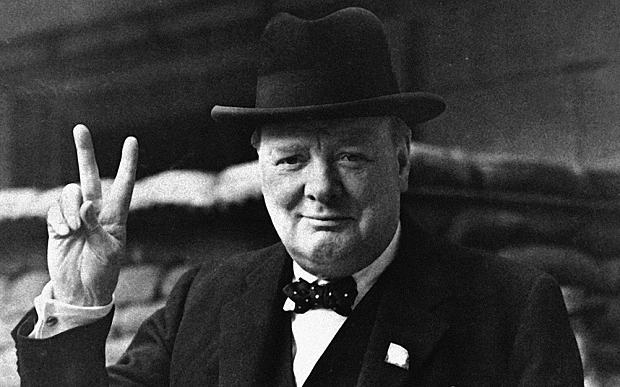By Andrew Roberts
6 April 2018

The movie Darkest Hour, in which Gary Oldman won an Oscar playing Winston Churchill, has garnered many plaudits, and deservedly so. It introduced a new generation to Churchill and the inspiring story of 1940, reminding them of how Britain stood alone for a year against the might and fury of Nazi Germany.
But it has also produced a vicious backlash against Churchill and all that he stood for, and unleashed an avalanche of vitriolic abuse, much of it ahistorical and ignorant.
It says more about our modern “fake history” culture than anything about Winston Churchill.
Churchill the monster?
A sub-editor on the Indian Express, Adrija Roychowdhury, wrote an article in the paper accusing the “unpopular racist” Churchill of, among other things, praising Mussolini, preferring Nazis to Communists, deliberately using the Bengal Famine to commit genocide, and using poison gas against Iraqi tribesmen.
These ancient tropes, long exploded by serious Churchill historians such as Sir Martin Gilbert and Richard Langworth, tend to be based on truncated quotes ripped out of context.
Thus Churchill praised Mussolini for repaying Italy’s war debts to Britain; he never once said he preferred Nazis to Communists; he did all he could to relieve the terrible Bengal Famine subject to the exigencies of the Japanese holding Burma and their submarines infesting the Bay of Bengal; and it was tear gas – not poison gas – that was used in Iraq.
Then we had a Channel 4 programme,Churchill’s Secret Affair, in which it was alleged – without any proof whatsoever, beyond ancient hearsay – that Churchill had cheated on his beloved wife Clementine with the sexy Lady Castlerosse.
Eye candy
This was picked up in every newspaper, not least because it gave editors the opportunity to print photos of Doris Castlerosse’s great-niece, Cara Delevingne. The allegations were based on a remark Churchill’s private secretary, Sir Jock Colville, made before his death in 1985, but at no stage did Channel 4 admit he did not become Churchill’s private secretary until after the alleged affair and that Churchill never spoke to him about it.
The Toronto Star, once a serious paper of record, meanwhile ran an article by its race and gender columnist Shree Paradkar about Churchill, “the barbaric monster with the blood of millions on his hands”, and how he “lacerated the world with tragedies”.
This perpetuated the myth that because Churchill made some remarks about Indians that today we would find racist – but which for a late-Victorian aristocrat were unexceptional – that he wanted to commit genocide.
Yet Churchill was a man who was willing to risk his life on numerous occasions to defend northern Indian tribes, and who constantly gloried in the increase in the population of India as a reason to commend the British Raj as a success.
In an article in the Washington Post entitled “Hollywood Rewards a Mass Murderer”, the ultra-nationalist Indian politician Shashi Tharoor claimed that Churchill “was one of the few British officials in favour of bombing Irish protesters, suggesting in 1920 that airplanes should use ‘machine-gun fire or bombs’ to scatter them.”
He was able to quote those five words of Churchill’s, but didn’t bother with the rest of the paragraph which shows that it was armed IRA murder squads that Churchill wanted to attack, not innocent Catholic demonstrators.
Hysteria
Of course Winston Churchill made many mistakes in his nearly two-thirds of a century in the public eye between first standing for parliament in 1899 and finally leaving it in 1964.
He can rationally be criticised from both the Right and Left for several serious errors of judgement, such as continuing with the Dardanelles Campaign for far too long, returning Britain to the Gold Standard, supporting King Edward VIIIduring the Abdication Crisis, and so on. These debates can be carried on temperately and with reference to the facts.
But this new strain of hysterical, ultra-politically correct, historically inaccurate, and in all too many cases intellectually fraudulent abuse of him is indicative of a collapse in our modern political discourse, more unhinged internet trolling than reasoned criticism. Fortunately each of these assaults has been repelled with facts, figures and accurate, contextualised quotations.
Next month the Oxford Union will be further dignifying the Churchill-abuse by debating the disgraceful, egregious motion “This House is Ashamed of Winston Churchill.”
Expect more hysteria.
Andrew Roberts’s new biography, Churchill: Walking With Destiny, will be published in October by Penguin
No comments:
Post a Comment